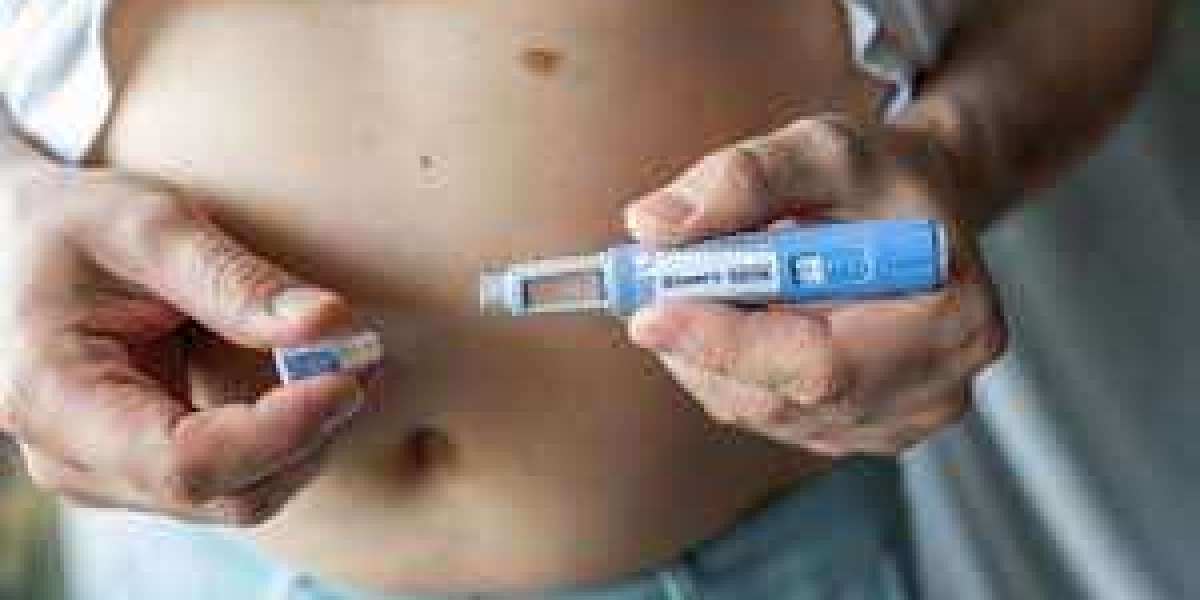Introduction: The New Era of Weight Loss?
In a world where quick fixes and lasting results often clash, the idea of fat loss injections seems like the holy grail of weight management. Imagine shedding stubborn fat without hours at the gym or restrictive dieting. Sounds tempting, right?
With the rising popularity of injectable treatments for weight loss, like semaglutide (Ozempic, Wegovy), lipotropic shots, and more, many are asking: Are fat loss injections safe? Do they actually work? Are they the future of weight management?
Let’s break down what these injections are, how they work, their pros and cons, and whether they truly offer a sustainable path to fat loss.
What Are Fat Loss Injections?
Fat loss injections refer to a range of injectable treatments designed to help people burn fat, boost metabolism, and support weight loss. They typically contain ingredients that:
- Stimulate fat metabolism
- Suppress appetite
- Improve energy levels
- Regulate blood sugar and insulin
Some of the most popular options include:
- Semaglutide (Ozempic, Wegovy) – A GLP-1 receptor agonist that controls appetite and regulates insulin.
- Lipotropic Injections – Contain a mix of vitamins and amino acids like B12, methionine, inositol, and choline.
- hCG (Human Chorionic Gonadotropin) – A hormone-based injection sometimes paired with low-calorie diets.
- Mesotherapy – Injects small amounts of fat-burning substances directly into stubborn fat areas.
How Do Fat Loss Injections Work?
Each type of injection works differently, but here’s a general idea of how they assist with fat loss:
- Appetite Suppression: Some injections affect hunger-regulating hormones in the brain, helping you feel full faster and eat less.
- Boosted Metabolism: Certain vitamins and compounds speed up how your body burns fat.
- Fat Breakdown: Lipotropic compounds can help break down fat more efficiently, especially in the liver.
- Insulin Regulation: Medications like semaglutide control blood sugar levels, reducing cravings and stabilizing energy.
The Most Popular Fat Loss Injections Today
1. Semaglutide (Ozempic/Wegovy)
Originally developed for Type 2 diabetes, semaglutide has taken the weight loss world by storm. By mimicking a hormone called GLP-1, it slows digestion, regulates insulin, and reduces appetite.
Pros:
- Clinically proven to result in significant weight loss
- Reduces hunger and cravings
- Weekly injections (convenient)
Cons:
- Potential side effects (nausea, fatigue, GI issues)
- Prescription only
- Expensive without insurance
2. Lipotropic Injections (B12 + MIC)
These injections combine vitamins and amino acids to support liver function and fat metabolism.
Pros:
- Boosts energy and metabolism
- Supports liver detox
- Safe when administered properly
Cons:
- Results vary
- Must be combined with diet/exercise
- Not a standalone solution
3. hCG Injections
Human chorionic gonadotropin is a hormone produced during pregnancy. Some weight loss clinics use it with very low-calorie diets.
Pros:
- Reported rapid weight loss
- Reduces hunger on extreme calorie deficits
Cons:
- Controversial and not FDA-approved for weight loss
- Extreme diets involved
- Questionable long-term results
Are Fat Loss Injections Safe?
Safety depends on the type of injection and how it’s used. Prescription medications like semaglutide are generally safe when taken under medical supervision. However, unregulated or DIY injections can be risky.
Common side effects include:
- Nausea or vomiting
- Headaches
- Dizziness
- Digestive discomfort
- Injection site irritation
Always consult a licensed healthcare provider before starting any injectable weight loss treatment.
Who Should Consider Fat Loss Injections?
Fat loss injections aren’t for everyone, but they might be worth considering if you:
- Struggle with obesity or stubborn weight despite diet and exercise
- Have a medical condition like Type 2 diabetes or PCOS
- Need medical support to kickstart your weight loss
- Are under the guidance of a physician
However, they’re not a magic fix. Long-term success still depends on healthy eating, movement, and lifestyle habits.
Pros and Cons of Fat Loss Injections
✔️ Pros:
- Can accelerate weight loss
- May help overcome plateaus
- Some options are medically proven
- Convenient and easy to administer
❌ Cons:
- Not suitable for everyone
- Risk of side effects
- Can be expensive
- Results may be temporary without lifestyle change
Do They Really Work?
Clinical trials have shown impressive weight loss results with drugs like semaglutide—many participants lost 15% or more of their body weight. Lipotropic shots are less well-studied but can be a helpful addition to a wellness routine.
That said, no injection can replace good nutrition, movement, and sustainable habits.
Think of fat loss injections as a tool, not a miracle.
FAQs About Fat Loss Injections
Q1. How fast do fat loss injections work?
It varies. Some people notice reduced appetite within a few days (especially with semaglutide), but visible fat loss often takes several weeks or months.
Q2. Are fat loss injections painful?
Most are subcutaneous (under the skin), like insulin shots. They may cause mild discomfort but are usually quick and manageable.
Q3. Are they FDA-approved?
Medications like semaglutide (Wegovy) are FDA-approved for weight loss. Others, like lipotropic shots, are considered supplements and not FDA-regulated for fat loss.
Q4. Can I use fat loss injections without changing my diet?
You can, but results will likely be limited. Combining them with a healthy diet and physical activity yields the best outcomes.
Q5. Are fat loss injections safe long-term?
Research is ongoing. Prescription options appear safe for extended use under medical supervision. Always follow your doctor’s recommendations.
Final Thoughts: Are Injections the Future of Weight Loss?
The future of weight management is undoubtedly changing, and fat loss injections are playing a big role. They offer new hope, especially for those who’ve struggled with traditional methods. But they're not a one-size-fits-all fix.
Like any health decision, it’s essential to weigh the risks and benefits—and to pair any injectable treatment with sustainable lifestyle changes.
Ready to Explore Your Options?
If you're curious about whether fat loss injections are right for you, speak with a qualified medical professional. Don't gamble with your health—get expert guidance, ask the right questions, and take control of your wellness journey with confidence.
✅ Talk to your healthcare provider today and see if a medically supervised fat loss injection plan fits your needs.


